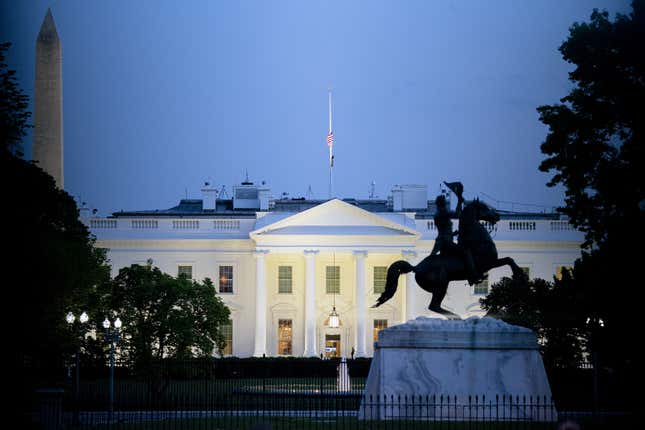
[Editor’s note: check-out part I of our series on the debt ceiling, where we explain why it matters and how the we got into this mess.]
The 11th-hour vote to raise the debt ceiling in the House means the nation may have narrowly avoided an economic catastrophe. But not everyone is pleased with what the White House gave away in order to get there.
Grassroots organizers and large groups like Greenpeace and the NAACP have expressed grave concern over the contents of the debt ceiling deal, arguing the impact on Black Americans and other marginalized groups could be disastrous. Their concerns raise the question, did President Joe Biden make the best of a bad situation, or did the GOP take him for a ride?
- Caps on non-defense spending.
- Roll-backs on environmental protections.
- An end to the student loan payment freeze in August
- New work requirements for food stamps and TANF recipients.
- The debt limit will be raised to 2025
Aspects of the bill could be considered wins for Democrats. For example, the Congressional Budget Office estimates that despite the new work requirements, more people will be eligible for food assistance under this bill because of changes to how the program handles work requirements for veterans and unhoused people. But overall, progressives argue that the deal was mostly a gift to GOP interests.
Will The Debt Deal Hurt Black Communities?
Black Lives Matter Co-Founder and Black Futures Lab Principal Alicia Garza doesn’t mince words when discussing her concerns about the new debt deal.
“The things that we’re seeing in this proposal are very reminiscent of the Regan era,” says Garza. “work requirements to receive basic assistance, cuts to education, cuts to the kind of safety net that makes America at least in theory, the land of the free and the home of the brave, and who suffers in these kinds of games are Black communities.”
Natalie Mebane, Climate Campaign Director at Greenpeace USA, is equally direct. “There’s absolutely nothing that I like about the debt limit compromise,” says Mebane. “There’s not a single line, there’s not a single thing that I want in there.”
What Does The Debt Deal Mean for The Environment?
Mebane is particularly concerned about the environmental impacts of the bill.“The environmental provisions alone are absolutely horrendous,” “[This] is going to harm everybody, but it’s especially going to harm communities that have already faced the brunt of environmental racism, which are mainly Black communities and indigenous communities.”
The provision that has environmental groups really up in arms is a change to the National Environmental Policy Act, which would limit the Environmental Protection Agencies’ ability to review a project’s environmental impact. It may sound small, but the effect would be massive, says Mebane. Without these types of guardrails on corporations, the kinds of disasters we’ve seen time and time again in the Black community (re: Cancer Alley) will be much more likely, she argues.
“This legislation harms everybody, but especially Black communities,” she says. “Black communities are already severely impacted by pollution at a significantly higher rate than all other communities.”
Did Biden Allow The GOP to Take Him For a Ride?
Tamara Toles O’Laughlin, Founder of Climate Critical Earth, part of the Movement for Black Lives, says that the White House allowed Republicans to manufacture a crisis for their own purposes. “We’ve been backed into a corner that was entirely foreseeable,” says O’Laughlin.
In essence, she argues that Republicans played a high-stakes game of chicken with the economy, and Democrats lost. “The fact that we could end up in a moment that that that stirs up yet another crisis on schedule,” says O’Laughlin. “And the only way to get out of it is to just throw a whole lot of black people under the bus, a whole bunch of poor people under the bus right next to them, and a whole bunch of folks who have been made in invisible under the bus, that all seems really super convenient.”
Not everyone shares the same assessment of Biden’s negotiation tactics. Algernon Austin, Director of Race and Economic Justice at the Center for Economic and Policy Research, says Republicans had the nation over the barrel.
“It wasn’t as bad as the hostage takers wanted,” says Austin. “So, in that sense, it’s a positive outcome because the people who were holding the United States hostage really wanted to do much more harm.”



